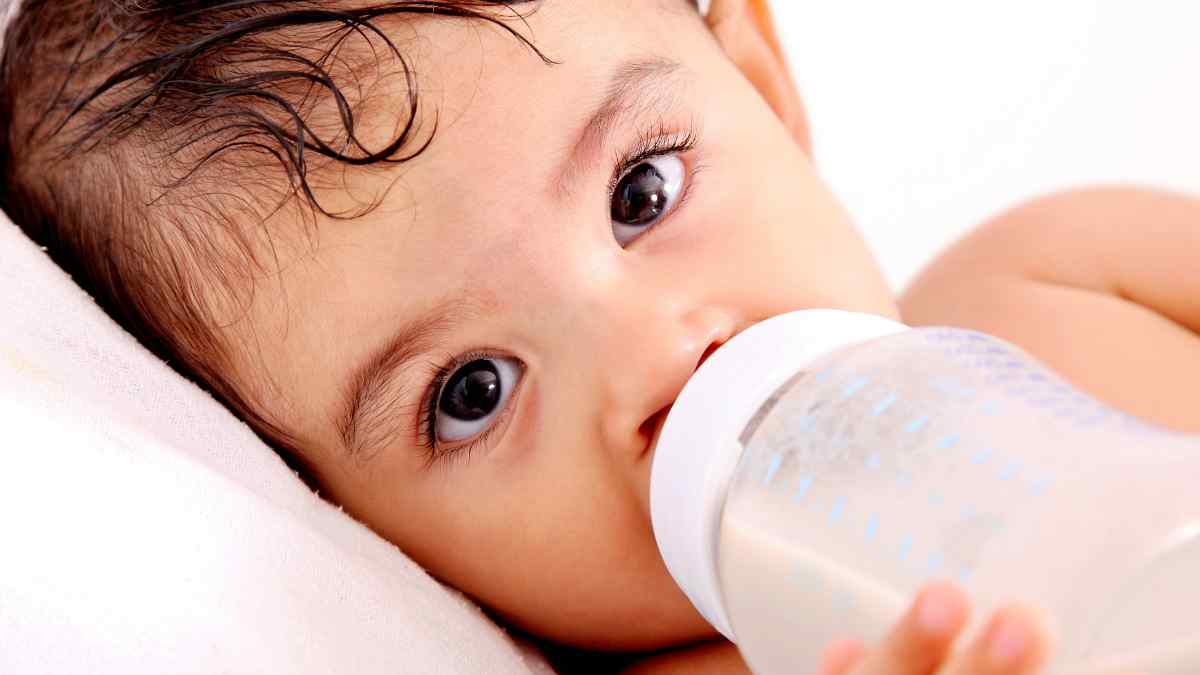Every parent dreams of their baby’s radiant health, and at the core of this aspiration lies the essential duo of hydration and digestion. While often discussed separately, these two components are intrinsically linked, playing a pivotal role in ensuring our little ones thrive. Just as the gentle rhythm of a lullaby can lull a baby to sleep, maintaining proper hydration can harmoniously set the pace for smooth digestion.
This article delves into the profound relationship between hydration and digestion, shedding light on its significance in promoting regularity for your baby. From understanding the nuances of the infant digestive system to recognizing the tell-tale signs of dehydration, we’ll guide you through the essential knowledge every parent should arm themselves with. Whether you’re a new parent or well into the journey, this comprehensive look will empower you to make informed decisions that bolster your baby’s digestive health.

Understanding Baby’ Digestive System
The Development of the Infant Digestive Tract: From Newborns to Young Kids
- Basics and Growth: Babies’ digestive systems are continually evolving. Starting from a diet of breast milk or formula, the infant digestive tract gradually prepares to handle more solid foods. By a few months of age, babies might be ready to experiment with diluted fruit juices and purees.
- Fluid Intake: Fluids are crucial at this stage. Whether it’s breast milk, formula, or baby water, ensuring enough fluid intake is essential to maintain body temperature, carry nutrients, and more. Formula-fed babies, for instance, might require mixing formula with tap water, while breastfed babies might benefit from some extra water, especially inhot weather.
- Special Considerations: One must be wary of giving too much water, leading to water intoxication. This can disturb a baby’s normal amount of electrolytes, potentially leading to severe issues.
Differences between Infant and Adult Digestive Systems
- Breast Milk vs. Solid Foods: Infants primarily rely on breast milk or formula for nutrition. This liquid diet ensures they get all the water and nutrients they need, unlike adults who need a mix of solid foods and drinking water. As babies grow, they transition to more solid foods, but their fluid needs remain paramount, especially in the form of milk or diluted fruit juice.
- Water Intake: While adults can drink water throughout the day using various sources, from tap water to sparkling water, babies require special considerations. It’s recommended to let babies drink water from a sippy cup or an open cup in small amounts, and only after they reach a certain age.
- Recognizing Dehydration: Babies might show signs of dehydration differently than adults. Sunken eyes, a dry tongue, discolored hands and feet, and fewer wet diapers are some signs in babies. Severe dehydration in children might require an oral rehydration solution, emphasizing the importance of staying hydrated.
- High Water Content Foods: As babies transition to eating foods, those with high water content can help keep them hydrated. However, unlike adults, young kids should avoid soft drinks and instead focus on foods and drinks that provide both hydration and nutrition.
Practical Tips for Keeping Your Baby Hydrated
- Know How Much Water is Right: It’s essential to understand how much water your baby needs throughout the day. While breastfed babies might get most of their hydration from milk, formula-fed or bottle-fed babies might need extra water, especially in warmer climates.
- Watching Out for Signs: Ensure your child doesn’t drink too much or too little. Signs like vomiting, diarrhea, or other signs of distress should be taken seriously.
- Choosing the Right Water Source: While adults might relish a cold sparkling water, babies need plain, safe water. If you’re unsure about the safety of your tap water, consider using special baby water or boil the tap water and let it cool.

The Role of Hydration in Digestion
The Essential Element: Water in Digestion
- Breaking Down Food: Just as we observed in infants, the significance of water extends to all ages. Drinking water is not merely a thirst-quenching act but plays a pivotal role in digestion. When we eat, our body requires water to help break down the food we consume. It acts as a solvent, facilitating the breakdown of essential nutrients in the food, making them more accessible and absorbable.
- A Temperature Regulator: Beyond its digestive role, water helps regulate body temperature. This is crucial for maintaining the optimal environment in our gut for enzymes to function efficiently in breaking down food.
From Absorption to Elimination: Water’s Multi-Faceted Role
- Nutrient Absorption: Once food is broken down, the nutrients need to be absorbed by our body to be utilized. Water plays a vital role here as well. It helps transport these nutrients to various parts of the body, ensuring optimal health. Without enough fluids, this transport system might be compromised, leading to poor nutrient absorption.
- Waste Elimination: One of the vital functions of water is to assist in waste elimination. After our body extracts the necessary nutrients from the food we eat, waste products are left behind. Water aids in flushing out these waste products, preventing constipation and ensuring a healthy digestive system. Without adequate water intake, children and adults alike risk serious dehydration, which can further complicate the waste elimination process.
The Importance of Staying Hydrated
- Drinking Regularly: Whether it’s a child drink or an adult beverage, ensuring regular water intake is crucial. As we’ve seen, water is not just about quenching thirst—it’s integral to our digestive process. Encouraging children to drink more water from a young age can set the foundation for a healthy hydration habit.
- Preventing Dehydration: The consequences of not drinking enough water can be severe, from showing signs of dehydration to more serious health complications. Vomiting, dry mouth, and dizziness are just some symptoms to watch out for. It’s essential to provide enough water, especially when consuming foods or formulas that might not have high water content.
- Moderation is Key: While staying hydrated is crucial, it’s also essential to ensure we don’t consume too much water in small amounts of time, as it can lead to water intoxication. Striking the right balance is vital.

Conclusion
The journey of understanding the intricate dance between hydration and digestion, especially for our little ones, is both enlightening and essential. From the first droplets of breast milk or formula to the introduction of solid foods, ensuring our babies receive the right amount of water is paramount. We’ve delved deep into the mechanics of the infant digestive system, highlighting the differences and similarities with adults, and underscored the critical role of hydration at every stage.
As parents, guardians, or caregivers, our primary goal remains steadfast: to nourish, nurture, and safeguard our children’s health. Armed with this knowledge, we can confidently navigate the waters of infant care, ensuring that our babies not only thrive but blossom into their radiant potential. By prioritizing hydration, we set the stage for smooth digestion, optimal health, and a future filled with the sweet melodies of laughter and growth.
I hope this article was helpful. If you have any questions, don’t hesitate to ask!



